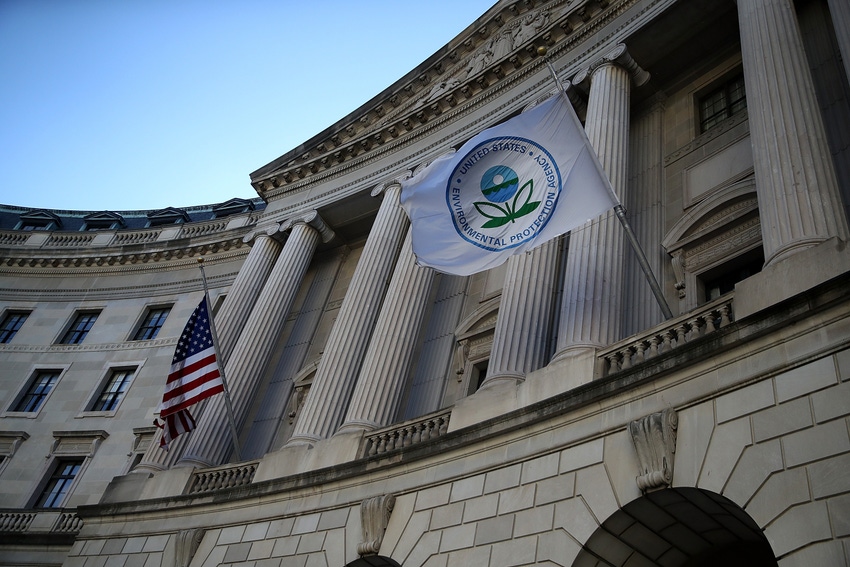EPA issued RFS exemptions against DOE advice
DOE confirms small refinery exemptions were not warranted for many that EPA granted.

Contrary to assertions by the Environmental Protection Agency, the U.S. Department of Energy (DOE) confirmed in a letter to Sen. Chuck Grassley (R., Iowa) that EPA issued so-called “economic hardship” exemptions under the Renewable Fuel Standard (RFS) to small refineries, often owned by billion-dollar oil companies, even when DOE found that the refineries faced little or no actual “hardship.”
In a response to an April 10 letter from Grassley, Energy Secretary Rick Perry outlined the role DOE played in the issuance of these waivers and indicated that EPA had, on at least one occasion, issued an exemption when the department recommended no exemption and ignored recommendations to grant only partial exemptions in other cases. Perry also indicated that the agency has not changed how these analyses are applied or scored from the prior Administration.
DOE sends recommendations to EPA regarding whether petitions for exemptions should be partially granted, fully granted or denied. In this letter, Perry confirmed that he is aware of instances in which DOE recommended a partial or even no exemption for certain refineries, yet EPA subsequently granted a full exemption. This contradicts former EPA Administrator Scott Pruitt’s claim before Congress that EPA simply followed DOE’s recommendations.
The number of small refinery waivers issued by EPA has skyrocketed in the last two years. Since the beginning of the Trump Administration, small refinery exemptions have increased nearly four-fold, and not a single request for an exemption has been denied. EPA gave out 54 exemptions from 2016 and 2017 compliance, reducing RFS blending requirements by 2.6 billion gal. The 2016 and 2017 exemptions led to a reduction in both the volume of ethanol consumed and the ethanol blend rate in 2018 — the first annual decline in either measure of ethanol demand in at least 20 years. Another 38 exemption requests remain pending at EPA.
In his April letter, Grassley specifically sought clarity on whether DOE had changed its criteria or methodology of how it makes recommendations to EPA for small refinery exemptions. He also requested information about how many instances EPA granted the exemptions without recommendation from the department.
“This confirms what we’ve suspected and has been reported by news media,” Grassley said. “President [Donald] Trump delivered on E15, but EPA has been undermining the President’s commitment to Iowa, the Midwest and rural America. I hope the White House puts an end to these handouts to Big Oil that hurt American farmers.”
“The admissions of the DOE letter flatly contradict previous statements from EPA officials who claimed their hands were tied by DOE recommendations on small refiner exemptions,” Renewable Fuels Assn. (RFA) president and chief executive officer Geoff Cooper said. “EPA has claimed it must follow DOE’s guidance on whether to grant or deny exemptions, but this letter clearly shows EPA ignored the recommendations and analysis provided by DOE.”
Cooper noted: “The demand destruction that has resulted from these exemptions has been real and significant. Ethanol producers and the corn farmers who supply our industry are facing some of the worst market conditions in a generation, and these small refinery bailouts are largely to blame for that. We urge President Trump and Administrator [Andrew] Wheeler to restore some integrity and judiciousness to the small refiner exemption program and ensure that any exempted renewable fuel blending requirements are redistributed to non-exempt refiners.”
Cooper said the letter also corroborates information recently uncovered through a Freedom of Information Act (FOIA) request filed by RFA in which a former EPA official warned Pruitt that granting certain exemptions “would be a clear violation of Mr. Pruitt’s oath of office.” Other information uncovered in the FOIA request shows the White House knew exemptions were being granted without any demonstration of “true economic hardship,” RFA said in a statement.
Iowa Renewable Fuels Assn. executive director Monte Shaw said the DOE letter "confirms media reports that former EPA Administrator Pruitt may have lied to Congress, which is a crime, and Pruitt’s past statements warrant further congressional investigation. Furthermore, this letter is all the proof President Trump should need that the RFS exemption program has been abused and his intervention is needed to stop the granting of unjustified RFS exemptions.”
About the Author(s)
You May Also Like




.png?width=300&auto=webp&quality=80&disable=upscale)
